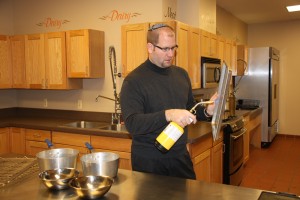
There’s a joke I often tell about a conversation regarding the kosher laws between Moses and God. God dictates the Jewish dietary laws to the Israelite leader in easy-to-understand terms, but Moses repeatedly complicates these statutes. Finally, frustrated, God gives up and tells Moses to just do whatever he wants.
From the commandments to not cook a calf in its mother’s milk and the prohibition on eating certain animals, the kosher laws have become a very complex system of eating restrictions. To ensure the compliance of the kosher standards from the farm to the factory to the grocery store to the restaurant, an entire industry of supervision and certification was been established. In recent years, I’ve found myself entrenched in this world of hashgacha.
In her recently published book, Kosher Nation, Sue Fishkoff provides the reader with an insider’s perspective about what goes on in the kosher food industry on a daily basis. Each chapter details another aspect of the Jewish dietary ethic – how kosher food has conquered the U.S. market, the business of kosher certification, the rise and fall of the Jewish deli, the kashering of a hotel for a wedding, and the often scandalous production of kosher slaughtered meat. Fishkoff circles the country to explain the subtle nuances of “keeping kosher” in the 21st century. She travels as far as China to shadow a kosher supervisor checking for compliance in several factories. Fishkoff provides insight into the sometimes dirty politics in which the kosher certification agencies have notoriously engaged. From extortion and price gouging to fraud and general dishonesty, kosher certification has gotten a bad name.
My journey to the kosher certification profession was not planned. In 2008, I was hired as the rabbi of Tamarack Camps, with my main focus to supervise of the agency’s kosher kitchens. To adequately prepare for this new role, I returned to the Jewish Theological Seminary in New York where I was ordained. Though I had served as a mashgiach (kosher supervisor) in the cafeteria as a rabbinical student, I required detailed instruction to oversee the large camping agency’s many industrial kitchens as a rav hamachshir (certifying rabbi).
This new position led to my private certification of a few bakeries, bagel stores and a vegetarian restaurant with the eventual formation of my own kosher certification agency, Kosher Michigan. This experience has been nothing less than fascinating. I now certify a paper mill that makes paraffin wax paper for kosher foods, olive oil bottling at a spice company, a gourmet chocolate factory, a foodservice corporation that provides shelf-stable meals to areas hit by natural disasters, as well as several other businesses. I’m frequently called upon to kosher industrial and residential kitchens, to consult Jewish organizations on kosher matters and to speak about the kosher food industry.
I have become accustomed to fielding many questions about my kosher certification. People want to know if “the Orthodox” (as if it’s a monolithic group) accepts my imprimatur. They want to know if “Conservative kosher” (their phrase) is really legitimate. I’m frequently asked to articulate my standards and demonstrate my knowledge. Without even understanding the term, they want to know if all of the food I certify is glatt (even the bagels!). Some are surprised that I conduct unannounced spot checks more often than many of my Orthodox colleagues.
As Fishkoff demonstrates in Kosher Nation, the kosher business has changed drastically over the past several years. She writes, “kosher has become one of the country’s hottest food trends. … A generation ago, kosher was a niche industry, the business of the country’s small minority of observant Jews. … Today one-third to one-half of the food for sale in the typical American supermarket is kosher. That means more than $200 billion of the country’s estimated $500 billion in annual food sales is kosher certified.” Not bad for a religious tribe that accounts for less than 2 percent of the U.S. population.
And it’s not just that there’s more kosher food out there. The rules of the game have radically changed as well. So many proverbial fences have been erected around the kosher laws that no 19th century rabbi would recognize them. Rabbis today can make a modest living washing leafy vegetables and checking them for miniscule bug infestations. The ultra-Orthodox have ruled that such innocuous items as strawberries, Romaine lettuce, Brussel sprouts, smoked salmon and water cannot be consumed because of either insects or microscopic copepods. Non-observant Jewish owners of kosher grocery stores, meat markets, and restaurants are no longer trusted to hold the keys to their own businesses.
A Mafia-like reputation (“Kosher Nostra”) has been attributed to the kosher certification industry. Fishkoff tells stories of strong-arm tactics and extortion when it came to kosher meat. “Corruption and scandal also plagued the processed food industry,” she writes. “Keeping kosher is a mitzvah, but giving kosher certification is a business. And that means money, politics, and all the other unpleasant temptations that can distract a Jew from fulfilling God’s commandments.” There’s a sordid history of lax supervision of kosher-for-Passover food, substitution of cheaper treif meat in butcher shops, and rabbis selling high priced kosher certifications with no oversight in exchange. Rabbi Don Yoel Levy, the head of the OK kosher agency was interviewed by Fishkoff. He told her, “Kashrus today is power and money. And unfortunately, it’s extremely competitive. Instead of people working together to improve kashrus, everybody tries to get business away from the other one.” Levy even blames kosher politics for his father’s death. He attributes the 1986 scandal that included death threats against the state inspectors to be the cause of his father’s demise.
I am frequently called by local business owners who have been interested in acquiring kosher certification for years, but have been turned off by the methods of the established agencies. I recently met with a store owner to discuss certifying her food market, which had previously been under kosher certification. When I told her that I wouldn’t confiscate her set of keys to her store even though she is not an observant Jew and that I donate the majority of my profits to local charities, she told me that I was “a breath of fresh air.”
Positive change is afoot in the kosher world. Today, more people are increasingly concerned about the food they eat, where it comes from and who is making it. They want to be assured that it is clean, fresh, safe and healthy. More people have specialized diets because of lifestyle choices, health reasons or religious values. Kosher is just another option in a category that includes vegan, organic, gluten-free and heart smart. There is a growing non-Jewish demographic that is maintaining some form of a kosher diet. And the leaders of Reform Judaism, which once shunned kashrut, are now promoting adherence to the kosher laws on some level.
Like me, other Conservative rabbis around the country are launching kosher certification agencies. There may be four major agencies, but there are close to a thousand smaller ones. Getting rid of the monopoly enjoyed by some kosher agencies in communities will only help reduce the price of kosher food. Kosher certification, I maintain, is about trust. When dirty politics and corruption are allowed to enter, they only diminish the holiness that kosher observance intends. Ending “Kosher Nostra” will add sanity to the kosher industry.
We have become so far removed from the kosher laws of the Torah and Talmud that we focus less on why we keep kosher and more on how punctilious we can be, only to “out frum” the next person. We have become so concerned about everyone else’s kosher standards that the same laws enacted to keep our community united are being used to keep us from ever being able to eat together. I’m reminded of the joke about the ultra-pious man who dies and goes to heaven. When a colossal feast of the choicest, most expensive foods is laid out in front of him, he inquires with the ministering angel about the kosher certification there in heaven. When he’s told it is the Holy One, God himself, who has sanctioned the kashrut of the food he decides to play it safe and just orders a fruit plate.
My goals for Kosher Michigan are simple. I want to help create more options for the kosher consumer without exorbitant prices. I want to shift the focus of kosher certification to trust and the compliance of sensible standards, regardless of denominational affiliation. It does not necessarily follow that a restaurant owner who does not observe the Sabbath cannot therefore be trusted to maintain the strictures of the kosher laws in his establishment. And just because a non-Jew has looked at a bottle of wine does not mean it is no longer suitable for Jewish consumption. I want to help people ask educated, thoughtful questions about kosher certification, rather than resort to pejorative comments that seek to divide our people.
I consider it a great honor to have the responsibility of keeping my eye on food production and preparation to ensure proper compliance of our kosher laws. No matter why people choose to eat kosher, I want them to feel confident trusting my certification. I’m only one person, but if I can help make the kosher industry more “kosher,” it’s an important start.
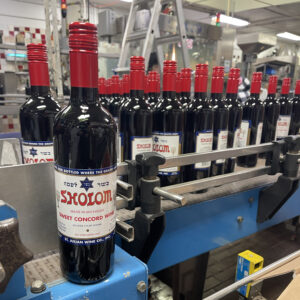 First introduced in the mid-1940s, Sholom has long been a popular offering from St. Julian Winery but has not been available since 2020. The long-time friend and rabbi the winery had worked with for years died. To be deemed kosher, wine must be made under the supervision of a rabbi, include only kosher ingredients and must be processed using equipment rabbinically certified to make kosher wines.
First introduced in the mid-1940s, Sholom has long been a popular offering from St. Julian Winery but has not been available since 2020. The long-time friend and rabbi the winery had worked with for years died. To be deemed kosher, wine must be made under the supervision of a rabbi, include only kosher ingredients and must be processed using equipment rabbinically certified to make kosher wines.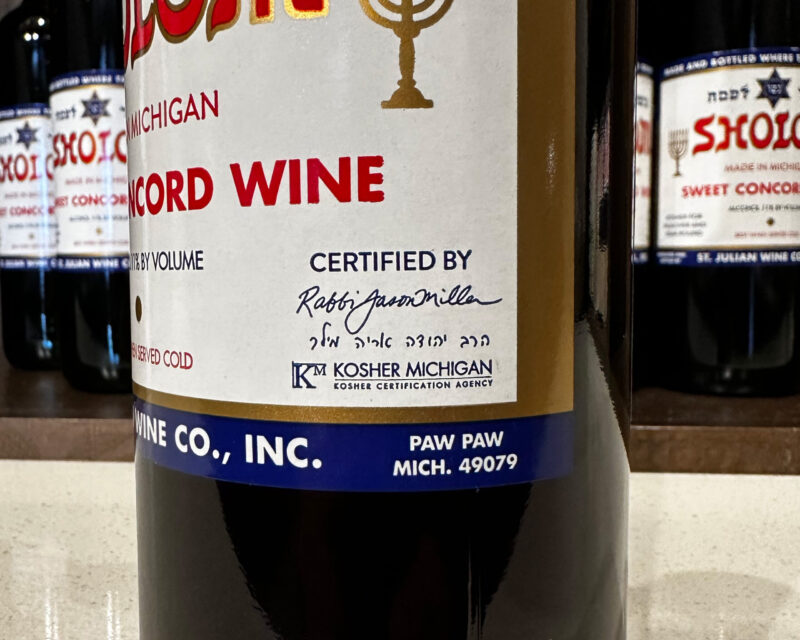
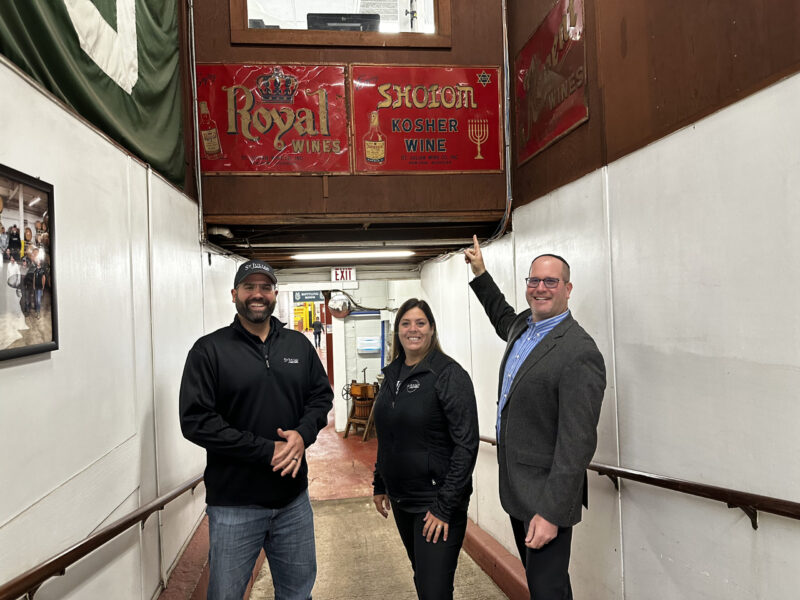 Kosher Michigan certifies thousands of products throughout North America, India and the Middle East. Kosher Michigan’s hekhsher (seal of approval) can be found on food products on supermarket shelves throughout North America.
Kosher Michigan certifies thousands of products throughout North America, India and the Middle East. Kosher Michigan’s hekhsher (seal of approval) can be found on food products on supermarket shelves throughout North America.
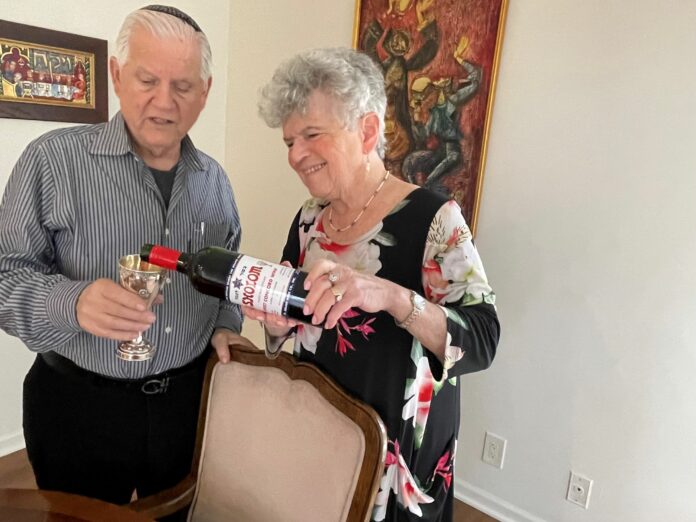
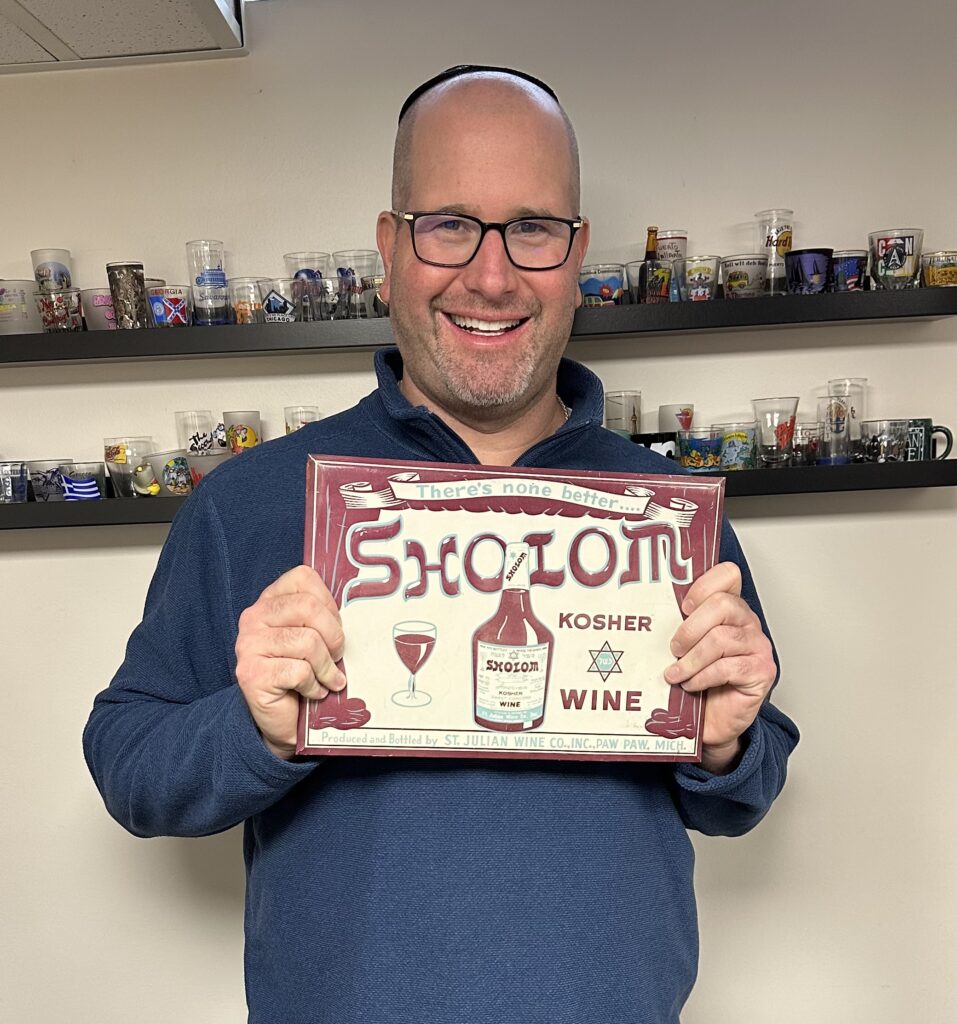
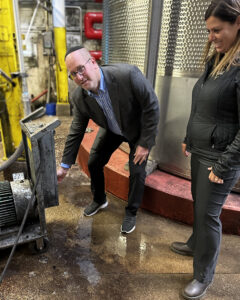 “Kosher Michigan is following the exact same kosher supervision process as the rabbis who previously certified Sholom wine for many decades, so there should be no concern that the highest kosher standards are not being followed,” said Miller.
“Kosher Michigan is following the exact same kosher supervision process as the rabbis who previously certified Sholom wine for many decades, so there should be no concern that the highest kosher standards are not being followed,” said Miller.